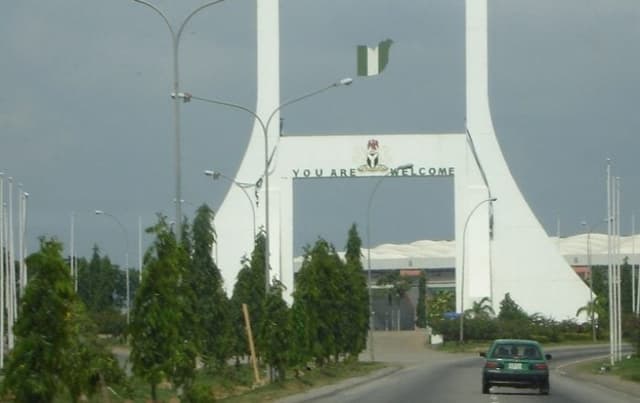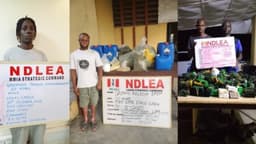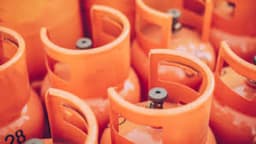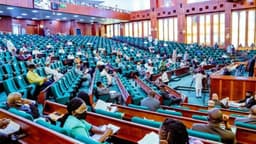
Random sample of lead-poisoned water
The Nigeria Hydrological Services Agency (NiHSA), on Thursday, raised concerns over the high concentrations of microbes, arsenic, and lead in water sources in Kebbi and Kogi states following flooding.
NiHSA warned that residents in the states face health risks from microbial and chemical contamination of their water sources.
The revelation came after NiHSA conducted a water quality assessment during flood evaluation exercises, which revealed contamination in some shallow wells caused by floodwater intrusion.
Speaking at a press briefing on Thursday in Abuja, the Director of Hydrogeophysics at NiHSA, Sunday Ushe, explained that there are high concentrations of microbes and arsenic in Kebbi State, while there are high concentrations of microbes and lead in Kogi State.
According to Ushe, floodwaters transported sediments and chemical residues from farmlands, mining areas, and open defecation sites into water bodies used for drinking and domestic purposes.
Ushe said, “From our assessments, there are high concentrations of microbes and arsenic in Kebbi State, while there are high concentrations of microbes and lead in Kogi State in the water sources of the states.
“When there is flooding, water sources are usually inundated because flooding transports sediments from very far locations, and these settle on water sources. The sediments contain microbes and heavy metals, which could originate from mining activities, agricultural practices, fertilizers, and herbicides applied on farms. These chemical elements also enter groundwater systems.
“The issue of microbes and pathogens also stems from sanitation problems—people defecate indiscriminately, animals also defecate, and these are transported by floodwaters and dumped into water systems. If it is groundwater, it is introduced into groundwater; if it is surface water, it remains there.
“According to the World Meteorological Organization, with regard to microbial contaminants or pathogens, the permissible limit of those bacteria is supposed to be 0.00, meaning they should not exist at all in water.
“But from our analysis, we found samples with high concentrations of microbes or pathogens such as E. coli, total coliform, Salmonella typhi, and Streptococci. These are bacteria or pathogens that are not supposed to exist in the water system, yet we found higher concentrations of these microbes in the states.”
He warned that contaminated water can cause diseases such as dysentery, diarrhoea, typhoid, and other gastrointestinal illnesses due to microbial pollution.
He also noted that heavy metals from sources such as mining or fertilizer use can enter water systems, especially during flooding, and contaminate both surface and groundwater through infiltration.
“We observed high concentrations of arsenic and microbes in Kebbi State’s water systems, and high concentrations of microbes and lead in Kogi State’s water systems.
“Meanwhile, the permissible limit of lead and arsenic set by the World Health Organization and the Nigerian Standard for Drinking Water Quality is 0.01 milligram per litre.
“But we found that in Kebbi State, arsenic concentrations range from one milligram to about four milligrams per litre, which is dangerous.
“If you consume water containing arsenic, it is toxic to health. It might not cause immediate harm, but over time, it targets organs like the kidneys, liver, and skin, and begins to damage them. It can cause liver and kidney damage, skin cancer, and bladder cancer, because the concentration exceeds the WHO-prescribed permissible limit.
“In Kogi State, lead concentrations range between 1.5 and about 12 milligrams per litre, compared to the permissible limit of 0.01 milligram per litre, according to the WHO and the Nigerian Standard for Drinking Water Quality,” he noted.
He added that lead exposure can cause kidney damage and neurodevelopmental disorders.
On his part, the Director-General and Chief Executive Officer of NiHSA, Umar Muhammed, called for stronger flood preparedness, improved sanitation practices, and tighter control of agricultural and mining runoff into rivers and groundwater systems.
Muhammed also called for greater collaboration among relevant ministries, humanitarian partners, and local authorities to ensure the provision of safe drinking water to affected communities. (The PUNCH)



























NEWS EXPRESS is Nigeria’s leading online newspaper. Published by Africa’s international award-winning journalist, Mr. Isaac Umunna, NEWS EXPRESS is Nigeria’s first truly professional online daily newspaper. It is published from Lagos, Nigeria’s economic and media hub, and has a provision for occasional special print editions. Thanks to our vast network of sources and dedicated team of professional journalists and contributors spread across Nigeria and overseas, NEWS EXPRESS has become synonymous with newsbreaks and exclusive stories from around the world.